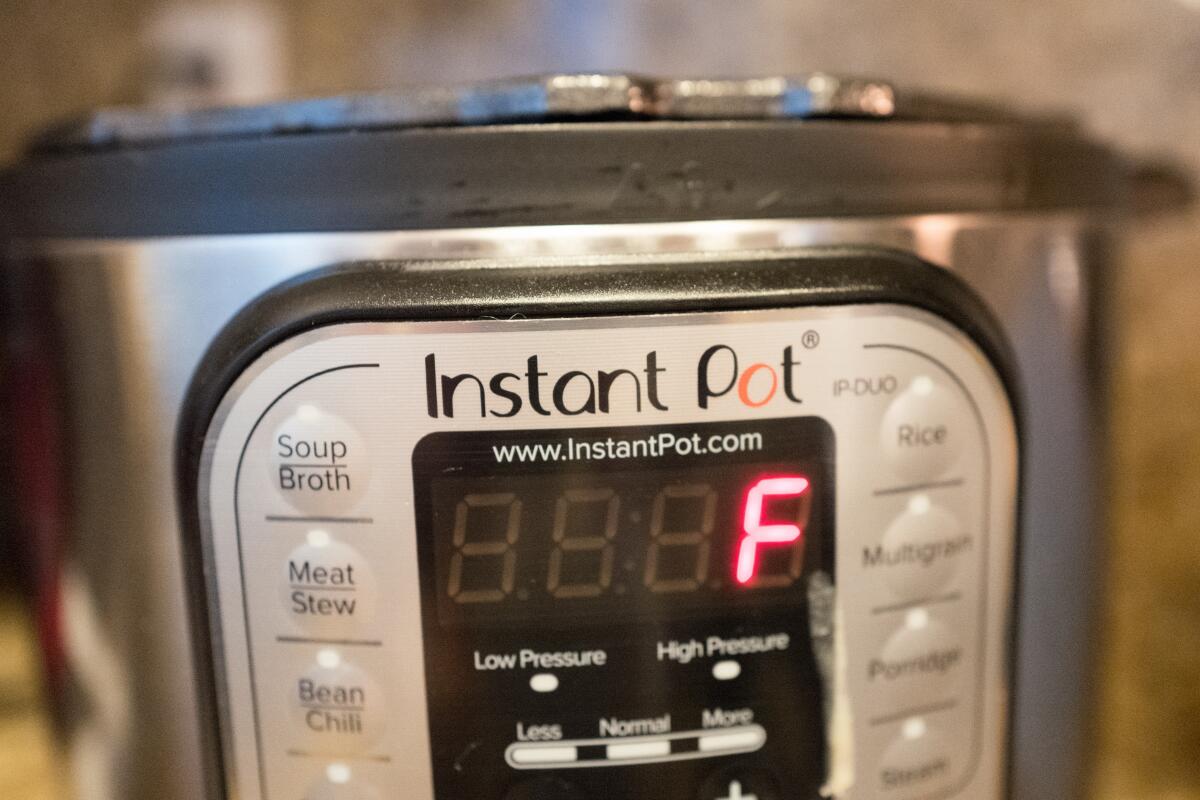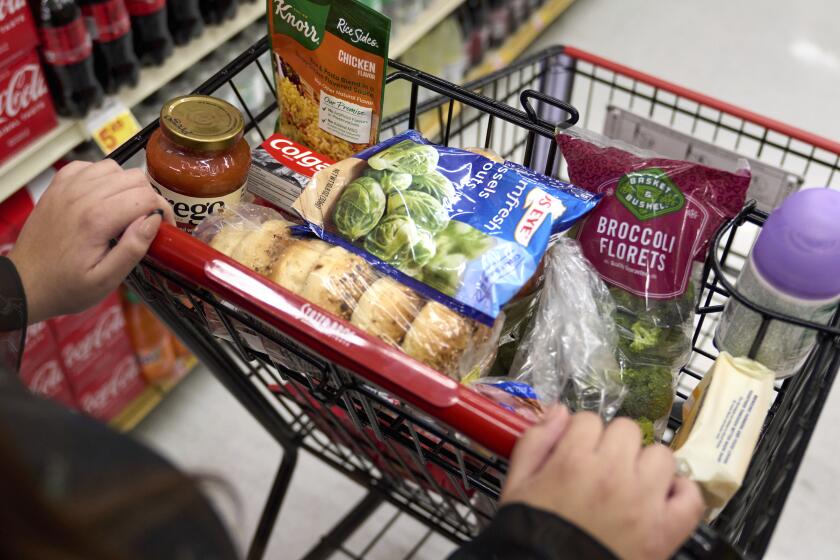Instant Pot maker seeks bankruptcy protection as sales go cold

- Share via
The maker of Pyrex glassware and Instant Pot has filed for Chapter 11 bankruptcy protection as the company that was already struggling is stung by inflation, with Americans pulling back on spending.
According to a filing with the U.S. Bankruptcy Court for the Southern District of Texas this week, Instant Brands, based outside of Chicago, has more than $500 million in both assets and liabilities.
Inflation has buffeted consumers after a pandemic-fueled binge on goods for the home, but spending has also moved elsewhere as people again are able to travel, or go to restaurants and shows.
And Instant Pots, which became a must-have gadget several years ago, have been disappearing from kitchens.
Sales of “electronic multicooker devices,” most of which are Instant Pots, reached $758 million in 2020, the start of the pandemic. Sales had plunged 50% by last year, to $344 million.
The Instant Pot is all the rage these days, but what exactly can you make with one and why are they suddenly so popular?
Just last week, S&P Global downgraded the company’s rating due to lower consumer spending on discretionary categories and warned that ratings could fall again if Instant Brands seeks bankruptcy protection.
“Net sales decreased 21.9% in the first quarter of fiscal 2023, relative to the same period last year,” S&P analysts wrote. “This marked the seventh consecutive quarter of year-over-year sales contraction. Instant Brands’ performance continues to suffer from depressed consumer demand due to lower discretionary spending on home products.”
U.S. manufacturers have also been hit, like consumers, by elevated inflation and higher interest rates.
Ben Gadbois, chief executive and president of Instant Brands, said the company managed its way through the COVID-19 pandemic and global supply chain issues, but has run short of cash.
Consumers are switching grocery stores, brands and ingredients as they try to cope with the cost of food.
“Tightening of credit terms and higher interest rates impacted our liquidity levels and made our capital structure unsustainable,” Gadbois said in a prepared statement Monday.
Instant Brands, whose brands also include Corelle, Snapware, CorningWare, Visions and Chicago Cutlery, said it has received a commitment for $132.5 million in new debtor-in-possession financing from its existing lenders.
The company was acquired four years ago by the private-equity firm Cornell Capital and it was merged with another kitchenware company, Corelle Brands.
Instant Brands’ entities located outside the U.S. and Canada are not included in the Chapter 11 filings.
More to Read
Inside the business of entertainment
The Wide Shot brings you news, analysis and insights on everything from streaming wars to production — and what it all means for the future.
You may occasionally receive promotional content from the Los Angeles Times.











